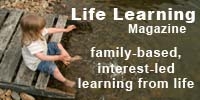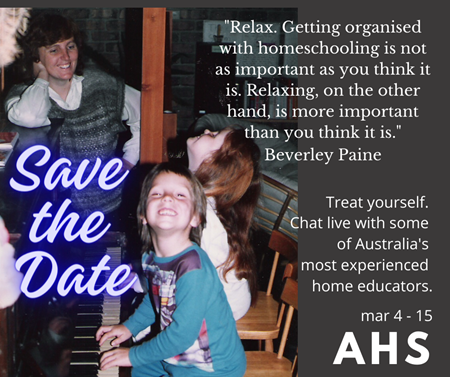|
Collections: Investments or Fun?
Beverley Paine
It starts out small… Children love to pick up interesting things and you put them in your pocket, take them home, look them up and display them for a week or two. Sometimes the item is too interesting to throw away, or your child finds another one. You find a shoe box or container and suddenly your child has a collection! Nostalgic parents and grandparents often fuel children’s passions for collecting with their fond memories of their own childhood collections. They know from experience that collecting has educational advantages.
Collecting is a great hobby that engages children’s interests and develops many skills. Saving up and spending money builds maths skills as well as learning how to budget and manage money. Some items help to develop reading and vocabulary skills. The organisational skills necessary for managing a collection translate into other areas of life.
True collectors appear at around age 7 or 8 – that’s when children can organise their collections beyond a single attribute such as colour, size, shape or type, and begin to use hierarchical classifications. Old children recognise that things can be classified in many different ways and are more flexible in their thinking. Organising, sorting and classifying collections naturally build cognitive skills. It’s at this age a budding bibliophile will reorganize his books into alphabetical, or category, order, rather than by size of book. A rock collector may focus on location or crystal type, or both. Dating, labeling and protecting items within the collection begin to become important.
Not all children will become avid or accomplished collectors. Some will move on, leaving their simple collections on the shelf, easily letting go of the need to collect which may be replaced by a variety of hobbies. Most children, however, will at some stage succumb to a less positive aspect of collecting.
Driven by the need to socialize and be accepted within their peer group they feel compelled to purchase and collect items popularized by merchandizing giants capitalizing on best-selling books, movies or television shows. It’s ‘cool’ to collect the latest fad. On the whole, homeschooled children seem less infected with this competitive reason to collect, but it can be the cause of anxiety for cash-strapped parents or disharmony within homeschooling groups. What begins as a sharing, fun activity can quickly turn to a form of class division between the ‘haves’ and the ‘have-nots’ which, in turn, can give rise to disturbing anti-social behaviour, such as hoarding and stealing.
Parents need to be involved, but not to the extent that they take over by searching for items instead of the children finding or buying them. It is difficult to teach children about economics and the value of working for things when it is always given to them. Children need to be shown how to balance their desire for collecting with the areas of their lives, particularly when it comes to managing their money. This might involve helping them to set limits.
The resale or swap value of collectibles can have positive and negative consequences. While it teaches children about investment, some children will become more concerned about the monetary value and less about the fun involved in building, organising and managing the collection. Parents may need to step in and talk about the child’s motivations. A budding investor will use this experience to build valuable skills she’ll need later in life. Another child may be doing it to take advantage of others, or to be accepted among her peers.
Most children aren’t interested in investment, but if the collection merits it, encourage them to collect good quality items and keep them in top condition. Items can be kept in boxes and packaging or it can be stored for when the investment will be realised. Recording information on how the item was collected or where it came from – its history – may increase its eventual value. Most children collect stamps, postcards or coins and all will increase in value if kept in good condition over time. Mass production of commercial fads means these items will rarely increase in value, even if they are released as ‘limited editions’.
The bottom line is that whether you are an adult or a child, it is best to collect what you are most interested in rather than on the speculation that it will one day make you rich.

Was this article helpful? Was it worth $1.00 to you?
Your gift of $1 or more helps to keep this site operating
offering encouragement
and reassurance to families
wanting
better outcomes for their children.



Beverley Paine with her children, and their home educated children, relaxing at home.
Together with the support of my family, my aim is to help parents educate their children in stress-free, nurturing environments. In addition to building and maintaing this website, I continue to create and manage local and national home educating networks, help to organise conferences and camps, as well as write for, edit and produce newsletters, resource directories and magazines. I am an active supporter of national, state, regional and local home education groups.
"You've been an inspiration to me, I love the way
you really listen to people." Vanessa
"Whenever I read your writing I always come away
with increased confidence in my ability to provide and
share a wonderful learning journey with my family!" Davina
"Your guidance, understanding, support and words of
wisdom changed our lives. We now offer support and
organise many homeschooling events for others." Lesley
"Thank you once again for your prompt and friendly service.
I am convinced that your books are going to add
quality and peace of mind to my journey of teaching my kids
at home! Just from studying your website, until almost
2am
in the morning, I 've been encouraged!" Louisa
"Thank you for all your many,many reassuring words
over many, many years. You probably don't know exactly how
valuable you are to the Australian Home Education community.
I've been reading your stuff for maybe 8 years or more now.
And I'm very grateful." Gythaa


CLICK HERE
if you want to learn
how to write your own education plans
to suit
your unique children's
individual learning needs?
Or you are looking for quality curriculum and teaching tips...
|
|
Welcome to the World of Home Education
and Learning without School!
We began educating our children in 1985, when our eldest was five. In truth, we had helped them learn what they need to learn since they were born. I am a passionate advocate of allowing children to learn unhindered by unnecessary stress and competition, meeting developmental needs in ways that suit their individual learning styles and preferences. Ours was a homeschooling, unschooling and natural learning family! There are hundreds of articles on this site to help you build confidence as a home educating family. We hope that your home educating adventure is as satisfying as ours was! Beverley Paine
3 ESSENTIAL STEP BY STEP GUIDES
Let experienced home educators Beverley, Tamara and April walk you through HOW to create a learning plan that builds on solid foundations that works for YOUR family AND ticks all the boxes for home educaton registration!
|

Tap into Beverley's
experience
through her books
"Your books, your blogs helped me beyond words... they helped me to find comfort in knowing it is ok to choose exactly what is best for my family." Nisha
"Your books and information are mind blowing and already I am feeling good about this new experience." Diane
"Your guidance, understanding, support & words of wisdom changed our lives." Leslie
"I feel specially inspired by Beverley's words and, the more I read her comments, the more inspired I feel, since my need for support, respect for different parenting styles, and information are fully met." Marijo
|
 |
|

The information on this website is of a general nature only and is not intended as personal or professional advice. This site merges and incorporates 'Homeschool Australia' and 'Unschool Australia'.
The Educating Parent acknowledges the Traditional Aboriginal and Torres Strait Islander Owners, the Custodians of Australia, and pay our respects to Elders past and present and extend that respect to Aboriginal and Torres Strait Islander people viewing this website.

Advertise on this site.













Australia's premier online annual conferences, lifetime access to video and audio recordings, freebies, notes and associated resource guides.
EVERY SUMMIT IS UNIQUE!
$29 each  2023 2023   2022 2022   2021 2021
$25 each  2020 2020  2019 2019   2017 2017
"Biggest and best Aussie homeschool event of the year!"

Home education is a legal alternative
to school education in Australia.
State and Territory governments are responsible
for regulating home education and have different
requirements, however home educating families
are able to develop curriculum and learning programs
to suit the individual needs of their children.

Without revenue from advertising
by educational suppliers and Google Ads
we could not continue to provide information
to home educators. Please support us by letting
our advertisers know that you found them on
The Educating Parent. Thanks!
|
![]() About
About
![]() Blog
Blog
![]() Articles
Articles
![]() Curriculum
Curriculum
![]() Resource Directory
Resource Directory
![]() Shop
Shop
![]() Kids Pages
Kids Pages
![]() Facebook
Facebook

![]() SA
SA ![]() VIC
VIC ![]() NSW
NSW ![]() QLD
QLD ![]() TAS
TAS ![]() ACT
ACT ![]() NT
NT ![]() NSW
NSW ![]() QLD
QLD ![]() SA
SA ![]() WA
WA ![]() TAS
TAS ![]() ACT
ACT ![]() NT
NT 





















